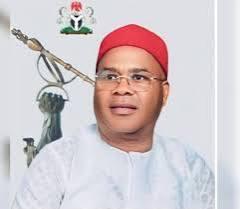By NewsBits
The governor of the Central Bank of Nigeria, Godwin Emefiele has told the House of Representatives on Tuesday that commercial banks in Nigeria will still accept old naira notes from customers after the February 10 deadline.
Emefiele stated this while appearing before the ad hoc committee set up by the House on the CBN naira redesign policy, although he did not state how long the expired notes would be admitted by the banks.
The Speaker of the House, Femi Gbajabiamila, had accused the CBN governor of breaching Section 20 of the CBN Act which, according to him, mandates commercial banks to accept old notes even after the deadline.
“After the expiration date, such naira notes changed will no longer be legal tender but it also says that even five months, three months, or two months after, even in June, all the old notes presented to the bank shall be redeemed by the bank,” Gbajabiamila had stated in a Thursday speech.
Emefiele, while addressing the ad hoc committee, said he agreed with the lawmakers on Section 20 of the CBN Act.
“Section 20 says even after the old currency has lost its legal tender status that we are mandated to collect that money. And I stand with the House of Reps on this,” he stated, adding that, “if you have your money that you have not been able to send to the bank. We will certainly give you the opportunity to bring them back into the CBN to redeem it. Either you pay it to your bank account, or you want to do an exchange — we give you. You will not lose your money. This is the assurance I give to Nigerians.”
Emefiele apologised to the lawmakers for failing to answer the previous summons, which the chairman said was accepted. He stated that the policy should have been introduced several years ago and that the CBN had only used the opportunity to make the economy more cashless. According to him, Nigerians would soon realise the benefits of the policy.
The chairman of the ad hoc committee, Alhassan Ado-Doguwa, after the hearing that lasted over one hour, called for an executive (closed-door) session with members of the committee. The Majority Leader and members later proceeded to the chamber where plenary was ongoing. The report of the committee was laid, considered, and adopted by the House.





